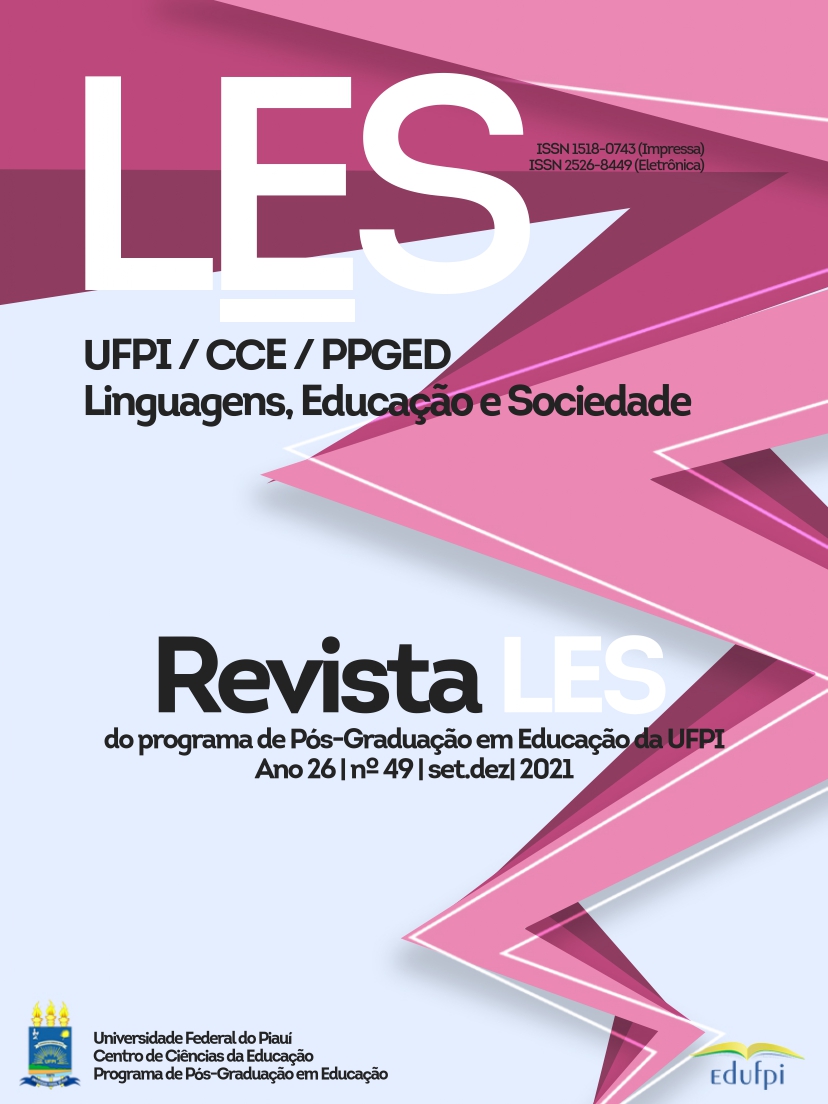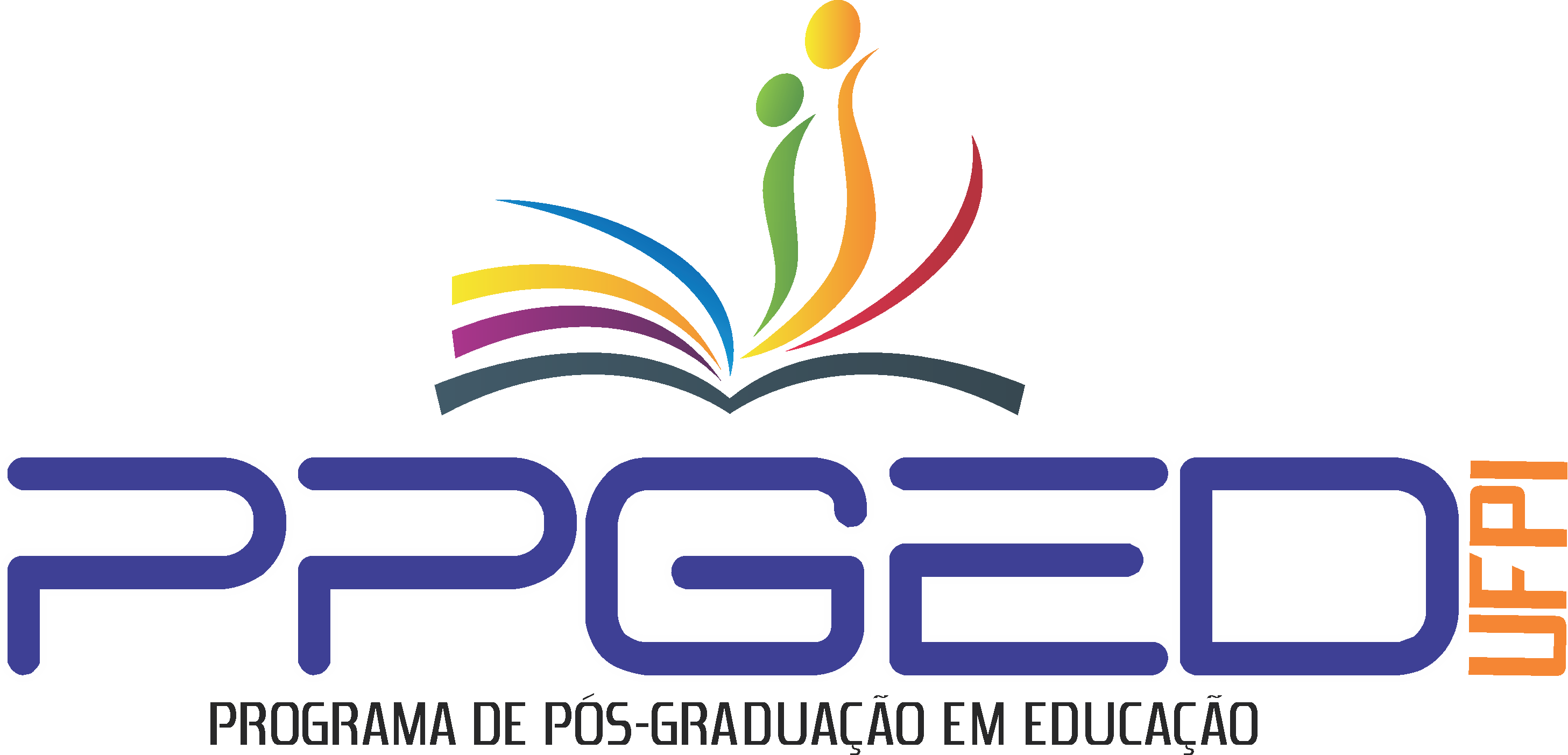ABORDAGENS PEDAGÓGICAS: UM ESTUDO DOS CONCEITOS DE LIBÂNEO E MIZUKAMI PARA PENSAR A RELAÇÃO ENTRE PROFESSOR E ALUNO NO ENSINO SUPERIOR
DOI:
https://doi.org/10.26694/rles.v25i49.2771Palavras-chave:
abordagens pedagógicas; Relacionamento entre professor e aluno; Ensino superior.Resumo
Este artigo tem como objetivo conhecer alguns dos conceitos, classificações e apontamentos relacionados às abordagens pedagógicas de Libâneo (1985) e Mizukami (1986) e sua implicação na relação professor aluno no ensino superior. Para tanto foi realizada pesquisa bibliográfica de natureza exploratória. Que de acordo com Trivinos (1967) tem o objetivo de delimitar e proporcionar um manejo seguro de determinada teoria. Parte-se de uma hipótese e se aprofunda o estudo no limite de uma realidade específica, buscando maior conhecimento a partir de uma revisão de literatura. A vantagem do caráter exploratório, segundo Lakatos e Marconi (2010), está no número de informações coletadas e na facilidade de análise por parte de outros pesquisadores. O resultado evidencia que a relação entre professor e aluno é definida a partir de uma abordagem pedagógica constituída por sua visão de mundo. Nela está incluída a forma como aprendeu e vivenciou o seu próprio processo educativo, seu o contexto histórico, cultural e político. Em cada situação que vive, o professor se aproxima ou se afasta de determinada tendência, podendo utilizá-las inclusive de forma conjunta, mesmo que, muitas vezes, sem um conhecimento prévio ou aprofundado dos estudos das abordagens pedagógicas.
Downloads
Referências
ANASTASIOU, L. G. C. Ensinagem como Desafio à Ação Docente, Revista Pedagógica, Chapecó, Ano 4, n. 8, Jan./Jun. 2002
.
ANASTASIOU, L. G. C; ALVES, L. Processos de Ensinagem na Universidade: pressupostos para as estratégias de trabalho em aula. Joinville: Univille, 2015.
ANTUNES, Celso. Relações interpessoais e auto-estima: sala de aula como um espaço de crescimento integral, faz. 16. Petrópolis, RJ. Vozes, 2007.
COSTA, Josimey. Criar, comunicar e expandir. In: Castro, Gustavo de (et al). Ensaios de Complexidade. Porto Alegre: Sulina, 1997.
DIAS, Isabel Simões. Competências em Educação: conceito e significado pedagógico, Revista Semestral da Associação Brasileira de Psicologia Escolar e Educacional: São Paulo, v.1, n.1, p.73-78, jan/jul, 2010.
FILATRO, Andrea. Teorias e Abordagens Pedagógicas. São Paulo. Senac, 2018. Disponível em: https://ler.amazon.com.br/kp/embed?linkCode=kpe&ref_=cm_sw_r_kb_dp_PSGXyb2MC8RPW&asin=B07BS1L9FX&tag=tpltrs-20&amazonDeviceType=A2CLFWBIMVSE9N&from=Bookcard&preview=newtab&reshareId=AH3TM9RV448YC8MG7RVT&reshareChannel=system. Acesso em: 23 out 2021
FREIRE, Paulo. Pedagogia da autonomia: saberes necessários a prática educativa. São Paulo. Paz e Terra, 1996
______. Pedagogia da indignação: Cartas pedagógicas e outros escritos. São Paulo: UNESP, 2000.
GIL, Antônio Carlos. Didática do ensino superior. Atlas, 2006.
LAKATOS, Eva; MARCONI, Marina. Fundamentos de metodologia cientifica. 7.ed. São Paulo: Atlas, 2010.
LIBÂNEO, José Carlos. Democratização da escola pública: a pedagogia crítico-social dos conteúdos. São Paulo: Loyola, 1985.
MIZUKAMI, M. da G. N. Ensino: as abordagens do processo. São Paulo: E.P.U, 1986.
______. Complexidade e transdisciplinaridade: A reforma da Universidade e do ensino fundamental. Natal: EDFRN, 2000.
______. O método II: a vida da vida. 2ªed. Porto Alegre. Sulina, 2002.
______. O método III: A consciência da consciência. Porto Alegre. Sulina, 1999.
PIMENTA, Selma G; ANASTASIOU, Léa das Graças C. Docência no ensino superior. São Paulo: Cortez, 2002.
SEVERINO, Antônio. Dimensão ética da investigação científica. Práxis Educativa. Ponta Grossa, v.9, n.1, p.199-208, jan./jun, 2014.
SAVIANI, Dermeval. A expansão do ensino superior no brasil: mudanças e continuidades. Poíesis Pedagógica, v.8, n.2 ago/dez, p.4-17, 2010
TRIVIÑOS, A. N. S. Introdução à Pesquisa em Ciências Sociais - A pesquisa qualitativa em educação. São Paulo: Atlas, 1967.
WEY, Hebe. O processo de relações públicas. São Paulo: Summus,1986.
WHEATLEY, Margaret J. Lideranças para tempos de incertezas: A descoberta de um novo caminho. São Paulo: Cultrix, 2006.













